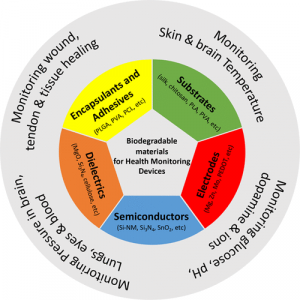Replacement body parts are a central part of the medical world with anything from an organ to a finger able to be replaced in a human body. With the world population growing and the expectation for a certain quality of life rising, demand for replacements are at an all time high but the issue coupled with this demand is the environmental impact of designing, producing and implanting replacement body parts into patients. One of the biggest issues in the world today is the battle against climate change and not only how individuals can combat this issue but how bigger corporations like the NHS can contribute to the fight, and as a knock on effect, this alters the way in which replacement body parts can be manufactured.
Waste in the NHS

I’ve always been a keen enthusiast of lowering carbon footprint and doing my part to contribute towards sustainability in the world and I’m also very keep on advancing medicine but the true inspiration for this literature came from my work experience at Bournemouth Hospital in the orthopaedics unit. Shadowing an anaesthesiologist allowed me to encounter many different angles of a working hospital but the most interesting area was the orthopaedics unit. I watched several knee replacement surgeries and the hundreds of pieces of sterile machinery and equipment used in the replacements but also the amount of waste produced. It made me question all the waste produced on the bigger scale and the negative environmental impact the manufacturing of the tools and prosthesis used in everyday surgeries and procedures.
Impact of sustainability on replacement body parts
A visit from MatOrtho in a module workshop highlighted how the pressure for the NHS to have net zero emissions by 2045 put immense pressure on them as manufacturers of replacement body parts to find more eco-friendly ways of producing what they already produce. With there already being so many limitations and restrictions to the way prosthesis can be produced, finding sustainable ways to carry on with their work is proving challenging but what I question is, at what point can you justify the production of carbon emissions in order to improve the quality of someones life through the creation of replacement body parts?
I was surprised to find the arguments of some claiming that the state of global health is a greater issue than the quality of life of those with a debilitating injury or loss of a limb but with the rise of sustainability activists like Greta Thunberg, the whole world needs to be thinking of ways to be more sustainable, not just the bigger corporations.
What does this mean for the future of replacement body parts?

Medicine is constantly advancing and nearly everyday there are discoveries or advances in the scientific world that lead to the improvement or saving of someones life so at what point do you limit that? As of 2022, there were 7000 patients on a waiting list for an organ transplant in the UK but this number is expected to decrease as organoids have opened up a whole new pathway in the world of organ transplants.
However this research could be restricted with the increasing regulations placed upon industries in order to preserve global health. But, if you were to break it right down to the foundations of transplants and prosthesis to the patients and family, if you were given the option to change your mothers, fathers, partners life by giving them the opportunity to undergo replacement surgery but the outcome may result in damaging the planet, would you go through with it? I know I would.
This is an initially reflective and well researched blog showing how you have chosen to explore the emerging field of…
This is a good attempt at a blog, where you reflect on your recent learning at a lecture/workshop to describe…
This is a fair to good blog, reflecting on your recent learning in some of your modules. You provide a…
This is an engagingly written and reflective blog focussed in general on ethics in medicine. You might improve by citing…
This is a good and well written an presented blog on an original subject - biofilms on implants. You explain…